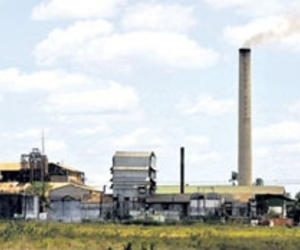Higher prices luring more farmers in Cuba
- Submitted by: manso
- Business and Economy
- 06 / 02 / 2011

Thu Jun 2, 2011 9:33am EDT. Sugar ministry providing free services to new farmers. *Land lease program prioritizes sector. By Marc Frank. HAVANA, June 2 (Reuters) - More Cuban farmers are opting to grow sugar cane due to higher prices and other incentives being offered by the Sugar Ministry as part of plans to revive the depressed crop, industry sources said this week.
Sugar may no longer be king on the Caribbean island where it once accounted for 90 percent of export earnings with 7 to 8 million tonne harvests, and today brings in only 5 percent of foreign currency.
But with international prices expected to remain high, the government is showing a new interest in the sector.
"The ministry is clearing and plowing land, providing seed and some other services to individuals who lease fallow state acreage under a government program begun in 2008," a local sugar expert said, asking his name not be used due to a prohibition on talking with foreign journalists.
"Mills have more than doubled what they pay for cane to 100 pesos per tonne (US$4.00)," he added.
The expert said the price remained too low, but free start-up services put sugar at an advantage over other crops where new farmers were expected to clear and bring land into production with little, if any, government support.
To date, the agriculture ministry has granted 128,000 leases covering 1.2 million hectares (2.9 million acres), with another 700,000 hectares (1.7 million acres) being offered.
The government is expected to liberalize the program this month by expanding the acreage an individual can farm, significantly extending the 10 year lease, and allowing homes and other structures to be built on the land, among other measures.
Output was around 1.2 million tonnes of raw sugar this year, slightly higher than the 1.1 million tonne 2010 season, but still one of the poorest performances on record.
The state owned industry hopes to increase production to 2.4 million tonnes by 2015.
"The agriculture ministry is prioritizing cane and pointing out its advantages when people come in seeking land," one industry insider said, adding thousands of new farmers were opting to grow sugar and existing ones to switch over or add it, without being more specific.
"Acreage earmarked for sugar cane is 974,000 hectares (2.4 million acres), of which 450,000 hectares (1.1 million acres) were in production this season," he said.
Cuba consumes an average 700,000 tonnes of sugar annually; however last year consumption was around 600,000 tonnes due to a reduction in the domestic ration and other measures.
Assuming similar local consumption this year, the industry would be offering around 200,000 tonnes on the market after meeting its 400,000 tonne toll agreement with China.
Ministry officials have said this year's output was 7 percent above plan, with industry sources reporting at least two extra shipments, totaling 80,000 tonnes, contracted. (Editing by John Picinich)
Source: www.reuters.com/article/2011/06/02/food-cuba-sugar-idUSN0228943720110602
Comments